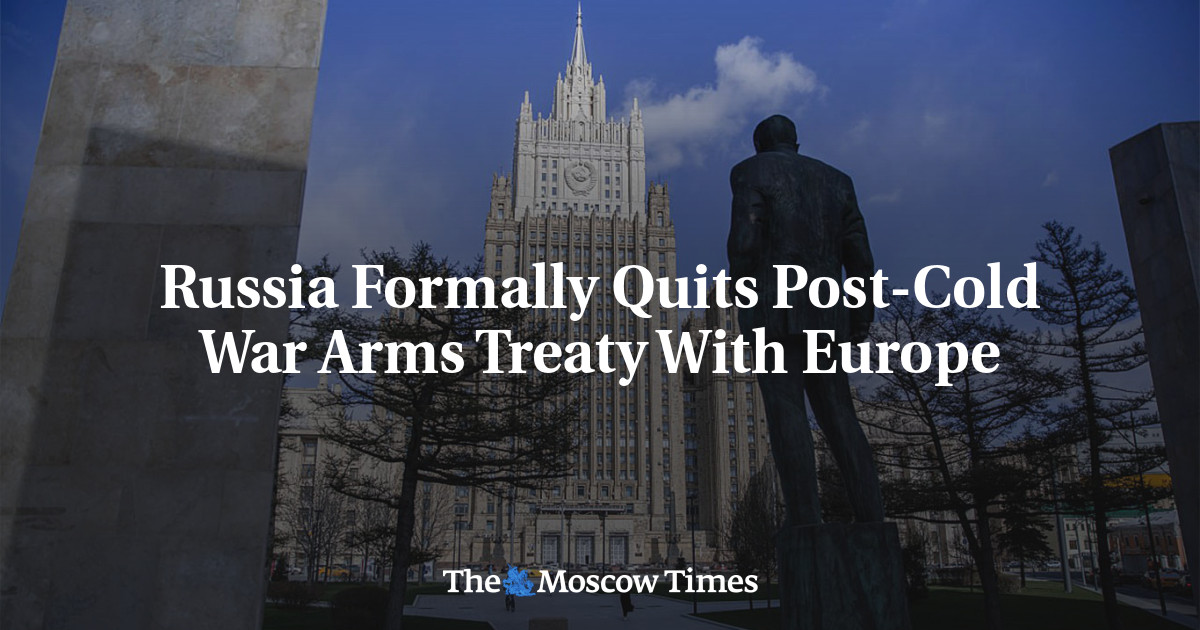
Russia has formally withdrawn from a key conventional arms control treaty with Europe decades after suspending cooperation over NATO expansion, Russia’s Foreign Ministry said Tuesday.
The 1990 Treaty on Conventional Armed Forces in Europe (CFE) placed limits on the number of conventional weapons that could be deployed by NATO and Warsaw Pact countries west of the Ural Mountains.
The collapse of the Soviet Union changed strategic balances, leading to Russia’s ratification of a revised CFE in 1999.
In 2007, Russia imposed a moratorium on participating in the CFE and halted participation in its consulting group in 2015, blaming NATO countries for failing to ratify the updated treaty.
The United States and other NATO members called on Russia to first withdraw forces from separatist territories in Georgia and Moldova before signing the updated CFE.
“At 00:00 on Nov. 7, 2023, the procedure established by the CFE for Russia’s withdrawal from the treaty was completed,” the Russian Foreign Ministry said.
“Thus, the international legal document… has finally become history for Russia.,” it said in a statement.
In May, President Vladimir Putin signed a law formally exiting CFE, with the Kremlin saying at the time that the Russian leader’s signature was a formality because the treaty was “already dead.”
The Foreign Ministry said Tuesday that “even the formal preservation of CFE has become unacceptable from the standpoint of Russia’s fundamental security interests.”
It noted that Moscow’s move stemmed from NATO bearing “direct responsibility” in fomenting the invasion of Ukraine, as well as the U.S.-led military alliance accepting Finland’s membership and considering Sweden’s application.
NATO has placed the blame on Russia for failing to comply with CFE obligations and said Moscow’s exit would undermine Euro-Atlantic security.